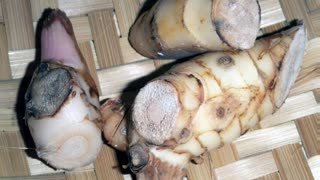Premium Only Content

Prímula ( Oenothera biennis ) serve para TPM, dores nos seios e para pele
Before using this herbal medicine consult a specialist first.
Evening primrose (Oenothera biennis) is used for PMS, breast pain and skin
Evening primrose oil, also known as evening primrose oil, is a supplement that can bring benefits to the skin, heart and gastrointestinal system due to its high content of gamma linoleic acid.
To enhance its effects, it is recommended that evening primrose oil be consumed together with small doses of vitamin E, improving its absorption.
This oil is extracted from the seeds of the Oenothera biennis plant and can be found in health food stores in the form of capsules or oil, and should be consumed according to the guidance of the doctor or herbalist.
What is it for:
Evening primrose oil is rich in gamma linoleic acid, also called omega-6, and therefore has anti-inflammatory and immune-stimulating properties, and can be indicated in several situations, such as:
Assist in the treatment of arterial hypertension;
Decrease circulating cholesterol levels;
Prevent the occurrence of thrombosis;
Prevent cardiovascular diseases;
Assist in the treatment of skin problems, such as acne, eczema, psoriasis and dermatitis;
Prevent hair loss;
Relieve symptoms of Lupus;
Assist in the treatment of rheumatoid arthritis.
In addition, evening primrose oil is widely used by women with the aim of relieving symptoms of PMS and menopause, such as cramps, breast pain and irritability, for example.
Side effects and contraindications:
Usually the consumption of evening primrose oil does not cause side effects, but some people may report headache, abdominal pain, vomiting or diarrhea, for example.
This oil is contraindicated in people who are allergic to plants of the onagraceous family, such as evening primrose, or to gamma-linolenic acid.
In addition, it is important to pay attention to the use of evening primrose oil together with medications for the treatment of mental illnesses, such as chloropromazine, thioridazine, trifluoperazine and fluphenazine, for example, because there may be an increased risk of seizures.
-
 3:07
3:07
NATURAL HEALTH
1 year agoAgrimonia ( Agrimonia eupatoria ) serve e é utilizada no tratamento de inflamações
65 -
 3:00
3:00
NATURAL HEALTH
4 years ago $0.02 earnedMostarda-negra ( Brassica nigra ) serve para dores reumáticas e bronquite
371 -
 3:22
3:22
NATURAL HEALTH
4 years agoErva baleeira ( Cordia verbenacea ) serve para dores musculares ou na coluna
109 -
 2:41
2:41
NATURAL HEALTH
4 years agoPatchouli ( Pogostemon cablin ) serve para pele rachada, dermatite e eczema
77 -
 2:53
2:53
NATURAL HEALTH
4 years agoMirra ( Commiphora myrrha ) serve para infecções na pele e na boca
103 -
 2:19
2:19
NATURAL HEALTH
5 years agoCebolinha serve para regular a pressão arterial
98 -
 2:35
2:35
NATURAL HEALTH
5 years ago $0.02 earnedCinchona ( Cinchona calisaya ) serve para malária
241 -
 2:23
2:23
NATURAL HEALTH
4 years ago $0.01 earnedPAPOULA ( Papaver rhoeas ) serve para bronquite e insônia
136 -
 3:05
3:05
NATURAL HEALTH
4 years agoGilbardeira ( ruscus aculeatus ) serve para varizes e hemorroidas
166 -
 2:49
2:49
NATURAL HEALTH
4 years agogalangal ( alpinia galanga ) serve para náuseas e enjoos
102